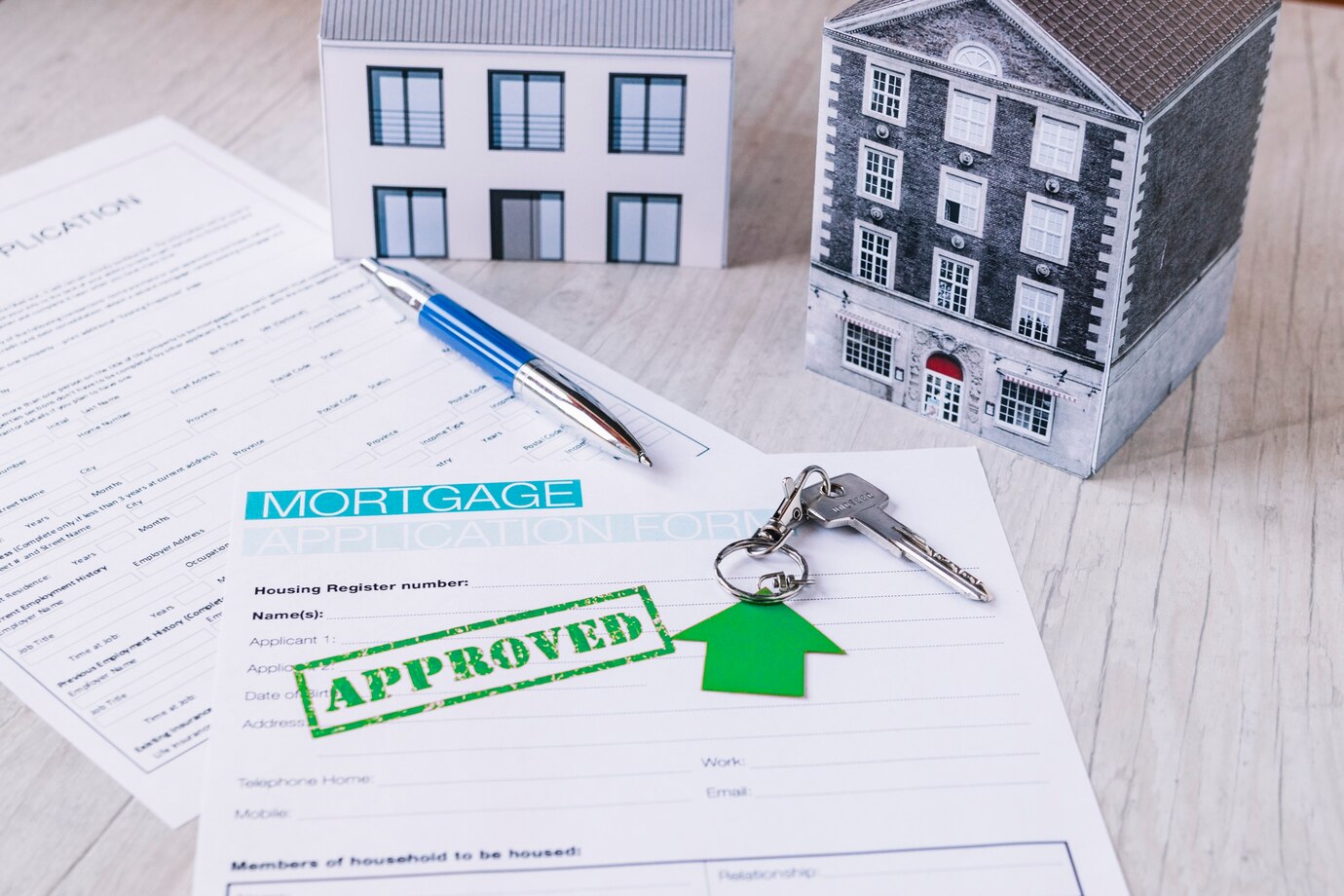
The mortgage pre-approval process is a crucial first step for anyone looking to buy a home in Winnipeg. It involves a lender reviewing your financial information to determine how much they’re willing to lend you for a mortgage. This process helps you understand your budget and shows sellers you’re a serious buyer.
Key takeaways
- Mortgage pre-approval gives you a clear idea of your home-buying budget
- The process typically takes 1-3 business days in Winnipeg
- You’ll need to provide financial documents like pay stubs and tax returns
- Credit score and debt-to-income ratio are key factors lenders consider
- Pre-approval letters are usually valid for 60-90 days in the Winnipeg market
- Getting pre-approved can give you an edge in Winnipeg’s competitive housing market
Understanding the importance of mortgage pre-approval
Getting pre-approved for a mortgage is like having a financial roadmap for your home-buying journey in Winnipeg. It’s not just a formality – it’s a powerful tool that can save you time, stress, and potentially money. When you’re pre-approved, you know exactly how much house you can afford, which helps narrow down your search to homes within your budget.
In Winnipeg’s fast-paced real estate market, having a pre-approval letter can give you a significant advantage. Sellers and their agents often prefer pre-approved buyers because it shows you’re serious and capable of following through with the purchase. This can be especially helpful in situations where there are multiple offers on a property, which isn’t uncommon in popular Winnipeg neighborhoods like River Heights or Osborne Village.
The difference between pre-qualification and pre-approval

Many first-time homebuyers in Winnipeg confuse pre-qualification with pre-approval. While they sound similar, they’re quite different processes. Pre-qualification is a quick, informal estimate of how much you might be able to borrow. It’s based on information you provide verbally, without any verification.
Pre-approval, on the other hand, is a more thorough process. The lender will verify your financial information and perform a credit check. This results in a more accurate assessment of your borrowing capacity. In Winnipeg’s competitive market, a pre-approval carries much more weight than a pre-qualification when you’re making an offer on a home.
Steps in the mortgage pre-approval process
Gathering your financial documents
The first step in getting pre-approved for a mortgage in Winnipeg is collecting all the necessary financial documents. This typically includes:
- Recent pay stubs (usually for the last 30 days)
- T4 slips and notices of assessment for the past two years
- Bank statements for the past few months
- Investment account statements
- Identification (like your Manitoba driver’s license or passport)
If you’re self-employed or have rental income, you might need to provide additional documentation. It’s a good idea to start gathering these documents early to streamline the process.
Choosing a lender
Winnipeg has numerous lenders offering mortgage pre-approvals, including major banks, credit unions, and mortgage brokers. Each has its pros and cons. Banks like RBC or BMO might offer competitive rates if you’re an existing customer. Local credit unions like Assiniboine Credit Union or Cambrian Credit Union often provide personalized service and understand the local market well.
Mortgage brokers can be particularly helpful if you’re a first-time homebuyer or have a unique financial situation. They work with multiple lenders and can shop around for the best rates and terms for your specific needs.
Submitting your application
Once you’ve chosen a lender, you’ll need to submit your mortgage pre-approval application. In Winnipeg, many lenders offer online applications, making the process more convenient. You’ll provide information about your income, assets, debts, and the type of property you’re looking to buy.
Be honest and accurate when filling out your application. Any discrepancies discovered later could jeopardize your mortgage approval.
The lender’s review process
After you submit your application, the lender will review your financial information and perform a credit check. They’ll look at factors like your credit score, income, and debt-to-income ratio to determine how much they’re willing to lend you.
In Winnipeg, this process typically takes 1-3 business days, although it can be longer during busy periods or if there are complications with your application.
Receiving your pre-approval letter
If your application is successful, you’ll receive a pre-approval letter. This document outlines how much the lender is willing to lend you, the interest rate they’re offering, and how long the offer is valid. In Winnipeg, pre-approval letters are typically valid for 60-90 days.
Remember, a pre-approval isn’t a guarantee of a mortgage. You’ll still need to go through the full approval process once you’ve found a home and made an offer.
Factors that affect your mortgage pre-approval
Credit score and history
Your credit score plays a crucial role in the pre-approval process. In Canada, credit scores range from 300 to 900. While different lenders have different requirements, a score of 680 or higher is generally considered good and will give you access to the best rates and terms.
If your credit score is lower, don’t panic. Some lenders in Winnipeg specialize in working with borrowers who have less-than-perfect credit. However, you might face higher interest rates or need to make a larger down payment.
Income and employment history
Lenders want to see a stable income and employment history. If you’re a salaried employee, they typically look for at least two years of continuous employment. For self-employed individuals or those with variable income, lenders usually want to see income tax returns for the past two years.
In Winnipeg’s diverse job market, from government positions to tech startups, lenders understand that employment can take many forms. Be prepared to explain any gaps in employment or recent job changes.
Debt-to-income ratio
Your debt-to-income ratio (DTI) is a key factor lenders consider. This is the percentage of your monthly income that goes towards paying debts. In Canada, lenders typically want to see a DTI of 44% or less, including your potential mortgage payment.
For example, if your monthly income is $5,000 and your total monthly debt payments (including your potential mortgage) would be $2,000, your DTI would be 40%.
Down payment amount
The size of your down payment can significantly impact your pre-approval. In Canada, you need a minimum down payment of 5% for homes under $500,000. For homes between $500,000 and $999,999, you need 5% on the first $500,000 and 10% on the remainder.
In Winnipeg, where the average home price is around $350,000, a 5% down payment would be $17,500. However, if you can put down 20% or more, you can avoid paying for mortgage default insurance, which can save you thousands over the life of your mortgage.
The benefits of getting pre-approved
Knowing your budget
One of the biggest advantages of getting pre-approved is knowing exactly how much you can afford to spend on a home. This can save you time and disappointment by focusing your search on homes within your budget. In Winnipeg, where home prices can vary significantly between neighborhoods, this knowledge is particularly valuable.
Faster closing process
When you’re pre-approved, much of the financial verification process has already been completed. This can lead to a faster closing process once you’ve found a home and made an offer. In Winnipeg’s competitive market, a quicker closing can be attractive to sellers and might give you an edge over other buyers.
Better negotiating power
With pre-approval in hand, sellers know you’re a serious buyer who can follow through on your offer. This can give you more negotiating power, especially in situations where there are multiple offers on a property. In popular Winnipeg neighborhoods like Wolseley or St. Boniface, this advantage can be crucial.
Lock in interest rates
Many pre-approvals come with a rate hold, which guarantees you a certain interest rate for a specific period (usually 60-90 days). This can protect you from potential rate increases while you’re house hunting.
Common pre-approval mistakes to avoid

Applying with multiple lenders simultaneously
While it’s good to shop around for the best rates, applying for pre-approval with multiple lenders at the same time can negatively impact your credit score. Each application typically results in a hard credit check, which can temporarily lower your score.
Changing your financial situation after pre-approval
Once you’re pre-approved, try to maintain your financial status quo until you’ve closed on your home. Changing jobs, taking out new loans, or making large purchases can affect your debt-to-income ratio and potentially jeopardize your mortgage approval.
Misunderstanding the pre-approval terms
Make sure you understand all the terms of your pre-approval. Pay attention to the interest rate, whether it’s fixed or variable, and how long the pre-approval is valid. In Winnipeg’s changing real estate market, these details can have a significant impact on your home-buying journey.
What to do if you’re not pre-approved
If your pre-approval application is denied, don’t lose hope. Here are some steps you can take:
- Ask the lender for specific reasons why you were denied
- Work on improving your credit score
- Pay down existing debts to improve your debt-to-income ratio
- Save for a larger down payment
- Consider applying with a different lender or working with a mortgage broker
Remember, the Winnipeg housing market offers options for various financial situations. You might need to adjust your expectations or look in different neighborhoods, but homeownership is still achievable.
The role of mortgage brokers in the pre-approval process
Mortgage brokers can be particularly helpful during the pre-approval process, especially for first-time homebuyers or those with unique financial situations. They have access to multiple lenders and can shop around for the best rates and terms for your specific needs.
In Winnipeg, mortgage brokers are familiar with local market conditions and can provide valuable insights into different neighborhoods and property types. They can also help you understand the various mortgage products available and which might be best suited to your situation.
Pre-approval and Winnipeg’s real estate market
Winnipeg’s real estate market has its unique characteristics that can impact the pre-approval process. For example, the city’s relatively affordable housing market means that many first-time buyers can enter the market with a smaller down payment compared to other major Canadian cities.
However, popular neighborhoods like Crescentwood or Tuxedo can be quite competitive, making pre-approval even more important. Being pre-approved can give you the confidence to act quickly when you find the right home.
The impact of economic factors on mortgage pre-approvals
Economic factors can significantly influence mortgage pre-approvals. Interest rates, set by the Bank of Canada, directly affect how much you can borrow. When rates are low, as they have been recently, borrowers can often qualify for larger mortgages.
However, it’s important to consider potential rate increases over the life of your mortgage. Winnipeg’s stable economy and job market can provide some buffer against economic uncertainties, but it’s always wise to leave some wiggle room in your budget.
- Documentation: Gathering all necessary documents is a crucial step in the mortgage pre-approval process. This may include bank statements, W-2s, tax returns, and pay stubs. According to Realtor.com, having all documents in order can help expedite the process and increase the chances of approval.
- Credit Score: A good credit score is essential for getting a favorable mortgage rate. FICO scores of 740 or higher are considered excellent, and borrowers with these scores may qualify for the lowest interest rates. Zillow reports that even a small improvement in credit score can lead to significant savings over the life of a loan.
- Debt-to-Income Ratio: Lenders use debt-to-income ratio (DTI) to assess a borrower’s ability to repay a mortgage. A DTI below 36% is generally considered ideal, but some lenders may accept higher ratios depending on other factors. Bankrate explains that reducing debt before applying for pre-approval can help improve DTI and increase the chances of approval.
- Shopping Around: Shopping around for the best mortgage rate is essential. According to the Consumer Financial Protection Bureau, borrowers can save thousands of dollars by comparing offers from multiple lenders.
- Pre-Approval vs. Pre-Qualification: Pre-approval and pre-qualification are two different things. Pre-approval means a lender has reviewed your financial information and committed to lending you a specific amount. Pre-qualification is an estimate of how much you might be able to borrow based on limited information. Mortgage Reports explains that pre-approval is more valuable to homebuyers because it shows sellers and real estate agents that you are a serious buyer.
Pre-approval and different types of properties
The type of property you’re looking to buy can affect your pre-approval. In Winnipeg, you’ll find a mix of property types, from single-family homes to condos and multi-unit properties. Here’s how they might impact your pre-approval:
| Property Type | Down Payment Requirement | Other Considerations |
|---|---|---|
| Single-family home | Minimum 5% for homes under $500,000 | Easier to finance, often preferred by lenders |
| Condo | Same as single-family homes | Lenders may consider condo fees in affordability calculations |
| Multi-unit property | A 20% down payment required if you plan to live in one unit | Rental income may be partially included in your income calculations |
The future of mortgage pre-approvals in Winnipeg

The mortgage pre-approval process is evolving, with technology playing an increasingly important role. Many Winnipeg lenders now offer online pre-approval applications, making the process more convenient for buyers.
However, the fundamentals of pre-approval – assessing a buyer’s financial situation and creditworthiness – remain the same. As Winnipeg’s real estate market continues to grow and change, having a solid pre-approval will remain a crucial step in the home-buying process.
Remember, while getting pre-approved is an important step, it’s just the beginning of your home-buying journey. Always consult with financial and real estate professionals to make informed decisions throughout the process. You can visit our website or contact us!